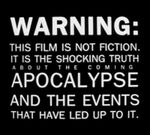User:C3/Research: Difference between revisions
mNo edit summary |
mNo edit summary |
||
| Line 25: | Line 25: | ||
No really, everything is text. | No really, everything is text. | ||
New media, on a material level, is nothing but text: images, video, sounds, whatever you can think of, if you experience it through a | New media, on a material level, is nothing but text: images, video, sounds, whatever you can think of, if you experience it through a device it is "just" text. When things get digitalized, they get transformed into text. The catch is that this text is not made for humans but for machines, and that this codification gets more only more complex as time passes. | ||
These machines however did not fall from the sky, somebody built them, and somebody "wrote" them, the way they behave is codified by people, what do they do with the text they receive is determined by their writers. | |||
Text is at the base of contemporary life, even though on a surface level all gets represented by | Text is at the base of contemporary life, even though on a surface level all gets represented by icons. Stopping at the image level makes everything distant (non-comprehensible), the only thing that's left to do at this point is to go back to basics and expand our ability to read. The natural consequence of that is also the enhancement of one's ability to write. | ||
This also helps finding patterns in everyday life, that then help to de-mystify and humanize the very dense contemporary codified life. | |||
=='''c̸o̵m̵p̷u̴t̵e̵r̵ ̷p̴h̴y̷l̵o̵s̵o̶p̵h̸i̴e̶s̷ ̵'''== | =='''c̸o̵m̵p̷u̴t̵e̵r̵ ̷p̴h̴y̷l̵o̵s̵o̶p̵h̸i̴e̶s̷ ̵'''== | ||
Revision as of 15:27, 14 November 2024
t̴h̵e̷ ̸ ̷ ̵ ̶ ̴ ̷ ̶ ̵ ̷ ̸ ̷ ̴i̸n̸f̶o̵ ̷ ̷ ̷ ̷ ̸ ̴ ̵ ̴ ̶ ̴ ̶ ̷ ̴ ̴ ̴d̷u̸m̶p̵s̷t̶e̴r̵
Dumping text here to start collecting material for my research. Sometimes this space will be very out of context, especially in the ¿̴ section.
¿̴
Dead Poets Society(1989)
Coding is Political
Tempmail
Rosetta Code
e̷v̷e̶r̷y̵t̶h̶i̴n̴g̶ ̵i̷s̵ ̴t̶e̷x̴t̴
No really, everything is text.
New media, on a material level, is nothing but text: images, video, sounds, whatever you can think of, if you experience it through a device it is "just" text. When things get digitalized, they get transformed into text. The catch is that this text is not made for humans but for machines, and that this codification gets more only more complex as time passes. These machines however did not fall from the sky, somebody built them, and somebody "wrote" them, the way they behave is codified by people, what do they do with the text they receive is determined by their writers.
Text is at the base of contemporary life, even though on a surface level all gets represented by icons. Stopping at the image level makes everything distant (non-comprehensible), the only thing that's left to do at this point is to go back to basics and expand our ability to read. The natural consequence of that is also the enhancement of one's ability to write.
This also helps finding patterns in everyday life, that then help to de-mystify and humanize the very dense contemporary codified life.
c̸o̵m̵p̷u̴t̵e̵r̵ ̷p̴h̴y̷l̵o̵s̵o̶p̵h̸i̴e̶s̷ ̵
s̷p̸a̷t̸i̴a̵l̶ ̶a̶s̷p̴e̵c̷t̸s̵ ̶o̷f̴ ̴t̶e̶c̴h̵n̶o̷l̷o̸g̶y̸
Computer went from rooms to pocket gadgets in the blink of an eye, but technology overall still takes a lot of space, it is just hidden inside of industrial complex in the middle of nowhere, or underground, or underwater.
p̴r̶a̵c̵t̶i̵c̴e̷s̶ ̴o̶f̸ ̷c̸a̷r̸e̶
p̸r̸o̴t̴o̵t̵y̸p̴i̸n̶g̴ ̶n̷e̶w̴ ̴e̴d̸u̷c̶a̷t̷i̷o̷n̷?̴
I would be interested in making crash tests in the form of talks/workshops/whatever aimed at trying to bridge the gap between people and computers (technology in general maybe). Computer literacy might be the term that refers to this, by the way, I know that people think that they don't need this at all, that pushing a button is all they need to get trough contemporary life, but I argue that since more and more aspects of life itself get platformed (meaning, they get "digitalized") learning general knowledge of how technology operates can help prevent black box magic and create the base for agency development of the individual (which hopefully then spreads it).
How to do all of this? Well, I think that I'll try to merge talking with Visual Thinking, with Abstraction, with Ways Of Seeing, with props, with people \__(•_•)__/.
Note 1: Abstraction leads to black box systems, so I will have to figure out a way to use it as an entry point (to then unwrap the usually-hidden process) rather then the end one.
Note 2: This is an attempt to create the possibility of choice, which comes from awareness. Currently, most people are in a default state, this passive condition actively influence our shared overall balance. Our current life is out of balance, in hopes for better times, these thoughts are meant to develop into practices of self and collective care.
- this entry was written past 21 so it might be confused.

